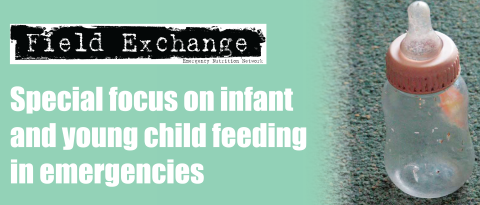Why is undernutrition not a higher priority for donors?
Summary of research1
Recent research by the Institute of Development Studies looks at how two donors prioritise undernutrition - The UK's Department for International Development (DFID) and the European Commission (EC). The study was based upon:
- Public commitments made in speeches and press releases
- Expenditures, based on data from the Development Assistance Committee (DAC)
- Opinions, assessed through interviews with key informants.
The research suggests that while DFID and the EC recognise the importance of undernutrition, they do not see investments in reducing it as fundamental to development.
However, the EC and DFID do spend relatively large amounts on healthcare, water supply and sanitation, social protection and food security. While these interventions can indirectly impact nutritional status, the absence of a nutrition strategy to guide them does not generate confidence.
The authors of the study suggest a number of reasons why commitment by DFID and EU are so lukewarm. These include the fact that as chronic undernutrition is affected by many different sectors, it is no-one's responsibility - a classic failure of collective action. As a result, there are few champions promoting nutrition within the EC or DFID. Another reason given is that the current focus on achieving good governance does not easily support the allocation of resources to nutrition. A third posited reason is that the way in which DFID and EC report on their progress means there are few incentives to prioritise nutrition. For example, DFID measures poverty using statistics about the number of people living on less than one dollar a day. Finally, DFID and the EC are not engaging with the international agencies responsible for nutrition while these agencies are too dependent on the donors to sufficiently challenge them, and so rely on the donors to proactively engage.
The authors suggest a number of ways in which DFID and the EC could do more on nutrition. These include:
- Highlighting the importance of nutrition for achieving the Millennium Development Goals, not only those on poverty and child mortality, but also on education, gender equality, maternal health and communicable diseases.
- Appointing a champion to promote nutrition in all departments and build stronger links with and support for other agencies, particularly the Standing Committee on Nutrition (SCN) - the only UN agency devoted to combating undernutrition.
- Using nutrition indicators to report on progress towards reducing poverty.
- Conducting a nutrition audit of their spending in areas which have a potential nutrition impact - for example, investigating whether investments in social protection, agriculture and water are as 'nutrition friendly' as they could be.
Finally, the nutrition community needs stronger leadership to challenge DFID and the EC more effectively. They need resources to conduct independent nutrition audits, and to find better ways to link nutrition to existing donor priorities.
1Sumner. A, Lindstrom. J and Haddad. L (2008). Why is undernutrition not a higher priority for donors? Id21, issue 3, produced by Institute of Development Studies.
Imported from FEX website


